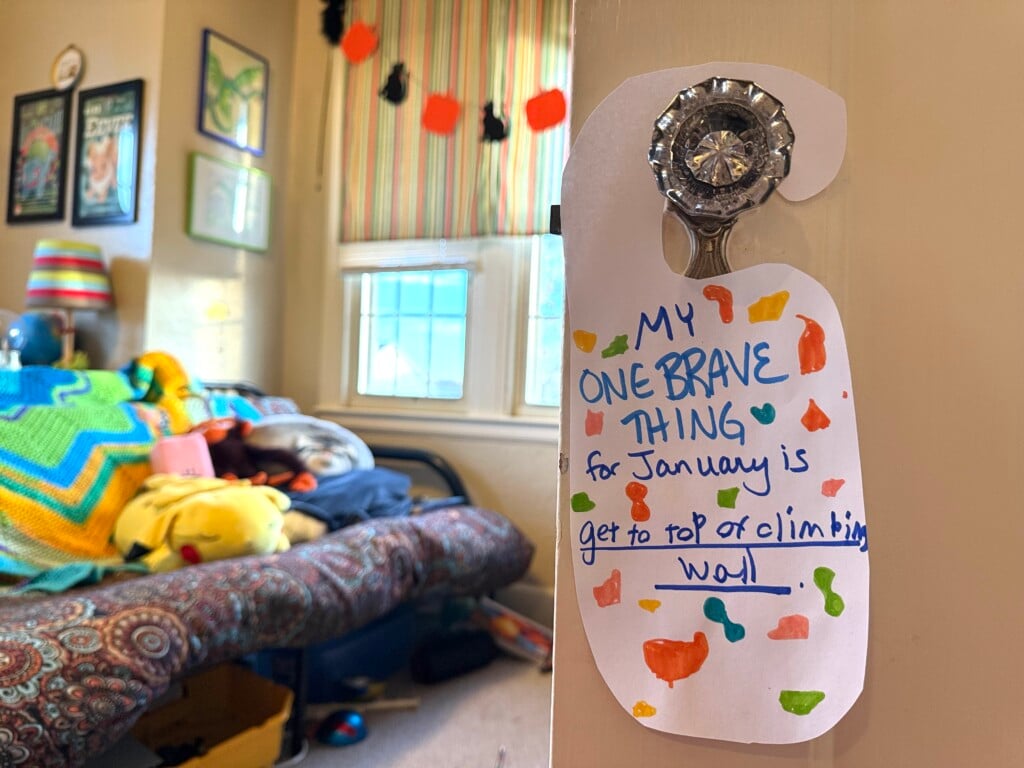The Emotional Roller Coaster of Co-Parenting
Lessons from the trenches

I was about to vomit all over my car. After a sleepless night, my son and I were on the road to Norman for his first competitive gymnastics meet. I was a bundle of nerves; not only because of my son’s first meet, but this was also the first time I would be with my ex-husband’s extended family since our divorce. (Also, my husband couldn’t come—we have three other kids between us—so there was always a lot of “divide and conquer.”) While our divorce was amicable, it did not erase the pain of ending a marriage, and I was not looking forward to being in close confines with his new wife and entire family for hours on end.
My nerves and anxiety aside, the gymnastics meet went as well as could be expected, and I made it through relatively unscathed. However, I soon began to realize that this was going to be the first of many instances where our families would have to figure out how to coexist in our new normal.
My son is now a freshman in college, and I would be lying through my teeth if I said things got easier after that first gymnastics meet. Birthdays, holidays, baseball games, football games, school conferences, homecoming, prom, graduation, college visits, even doctor appointments became major stressors in my life.
As I reflect on the ups and downs of co-parenting throughout the years, there are many things I wish I had handled differently. And while hindsight is 20/20, I have the battle scars from lessons learned and sage advice from some professionals that I hope might provide insight to others who are on the front lines of co-parenting.
Leave emotions behind
This was probably the biggest obstacle I faced. I cannot count how many times I would throw myself on the bed and scream into my pillow or sob for hours in the privacy of my closet (unfortunately, some of my meltdowns were not always so private).
“You need to think of this as a business relationship,” says Lorri Perez, senior program director for the Family and Child Center at Family & Children’s Services. “Your goal is to work together to raise your children to be functionally healthy, so you need to communicate with facts, not feelings.”
From my personal experience, this was much easier said than done, although I did try hard not to expose my son to my emotions.
“There is definitely a grieving process going through a divorce,” Perez says. “However, remember that divorce is not the child’s fault. Parents need to be the ‘adults’ and focus on the problem, not the person.”
Put your child first
This may seem like a no-brainer, but when emotions are raw and tempers run high, this sometimes can get lost.
“The number one pitfall I see is parents putting their own needs or wants above the needs of the children,” says Brad Cunningham, partner at Conner & Winters, LLP, who specializes exclusively in family law. “I see this most when parents fight about small details about the other parent getting to see the child after a sports game or attending a classroom party – and they don’t.”
Cunningham understands that parents are already missing time with their children and want as much time with them as possible. However, he stresses that the parents must understand how their actions impact their children.
“I recommend to all my clients to treat the other parent respectfully,” Cunningham says. “Be cordial and polite and do whatever is necessary to reduce stress in the children, even if it means working out a schedule to alternate attending classroom parties or sporting events.”
Establish boundaries
This one was also a tough one for me. I have always struggled with boundary setting, and this would not serve me well over the years. Many awkward occasions such as mom, dad, son and stepmom in a crowded doctor’s office for a well-visit might have been avoided if those pesky boundaries had been clearly defined from the beginning. Fortunately, the doctor thought it was humorous and apologized for being “late to the party.” I, on the other hand, was mortified and angry. Did there really need to be three parents attending a child’s checkup? Did there really need to be a mom vs. stepmom showdown on prom photos and tuxedo shopping? Was there really a question on who should be a homeroom mom?
That would be a hard no.
But there I was, stuck in the middle of some truly painful situations.
“From the beginning, it’s important to negotiate with the other parent on what is the involvement of the stepparent,” Perez says. “Discuss expectations about the stepparent’s role and what that looks like for each family.”
For me, I think it was not recognizing what was realistic for our situation. I was naive in thinking that my son’s stepmother and I could share responsibilities and work together on various items. Often things would become territorial, which caused negative feelings toward the other, and then it all went downhill. There is no doubt we would have benefited from some boundary setting.
“You need to set realistic expectations,” Perez says. “Know yourself and whether you can handle going to events, et cetera as a big group or with the other parent. If someone isn’t on board with it, then it’s probably not a good idea.”
Plan ahead
While it might be overwhelming to figure out summer vacation plans in January, or holiday plans in July, it goes a long way in ensuring a smoother existence for everyone.
“In any situation where parents live separately, major life events can be tough to navigate,” Cunningham says. “The first and most important aspect is to have a set schedule for each parent’s time with the child/children, including holidays and vacations.”
Cunningham also emphasizes that other events like graduations, school assemblies and sporting events are not likely to be in the divorce decree, so it is paramount to discuss and work out logistics with the other parent far in advance.
“It’s important to be as specific as possible,” Cunningham says. “This could include such detail as how much time each parent gets to spend with the child before and after the event to where everyone sits.”
Resources
Family and Children Services offer several resources for parents going through divorce, or even afterwards if there are still issues. While their “Helping Children Cope with Divorce” class is state-mandated for all couples, Perez recommends an optional class for those still struggling with co-parenting.
“This is a great option for parents,” Perez says. “It’s a six-week course in a group setting focused on cooperative co-parenting. The group setting helps parents realize they are not alone and helps normalize their experiences.”
Family and Children Services also offers counseling sessions for the parents and the child, as a group or individually. And in extreme cases, a parenting coordinator can be appointed by the court to help resolve conflicts in a more informal setting.
“There will be mistakes and missteps throughout this journey,” Perez says. “The most important thing to do is to figure it out together—what realistically works for your situation. It won’t look the same for every family, but if you share the common goal of raising a happy and healthy child, you are on the right track.”
 Marnie is an accomplished PR professional with over two decades of experience in public relations, community engagement, event planning, strategic communications, non-profit management, writing and media relations.
Marnie is an accomplished PR professional with over two decades of experience in public relations, community engagement, event planning, strategic communications, non-profit management, writing and media relations.




